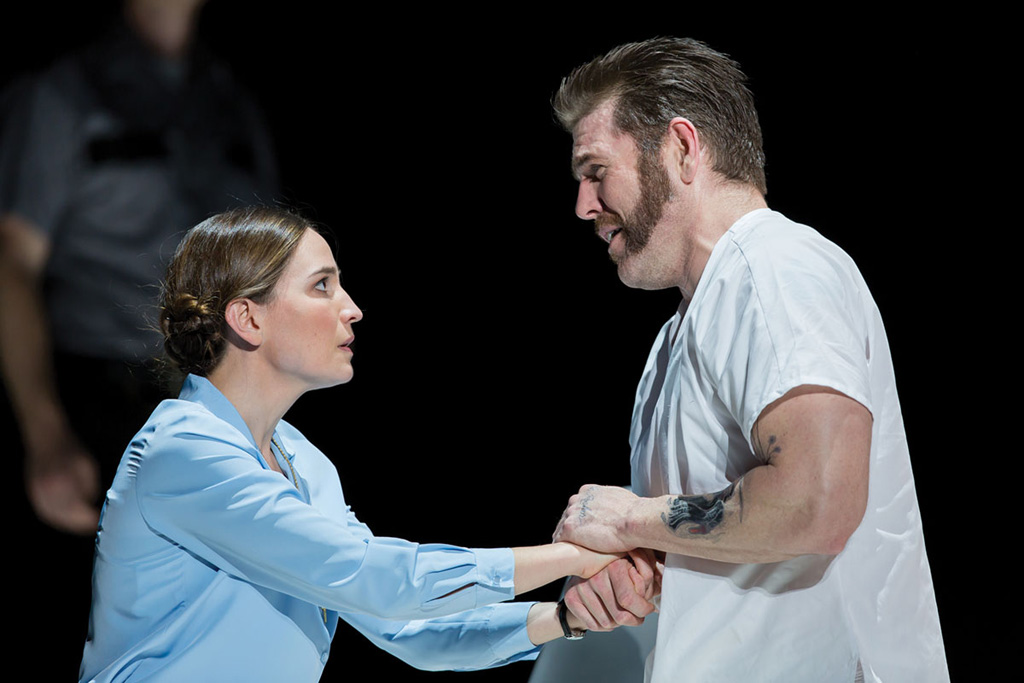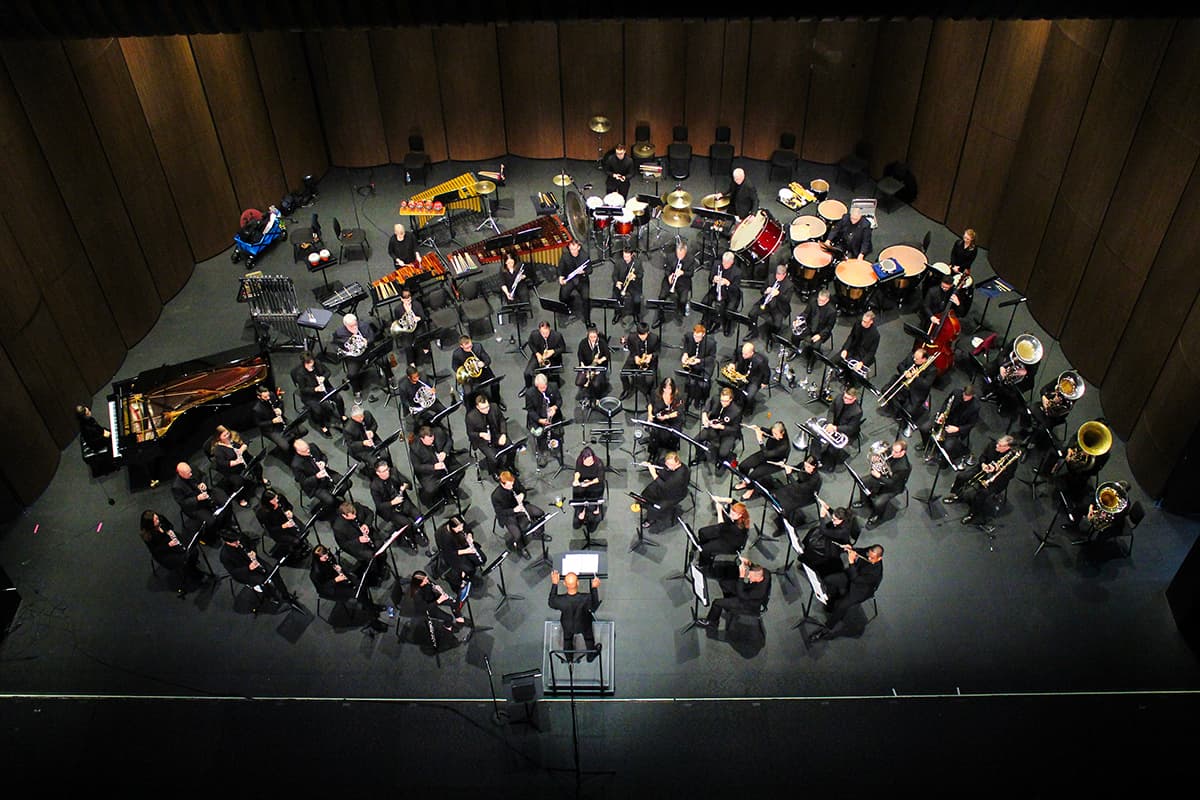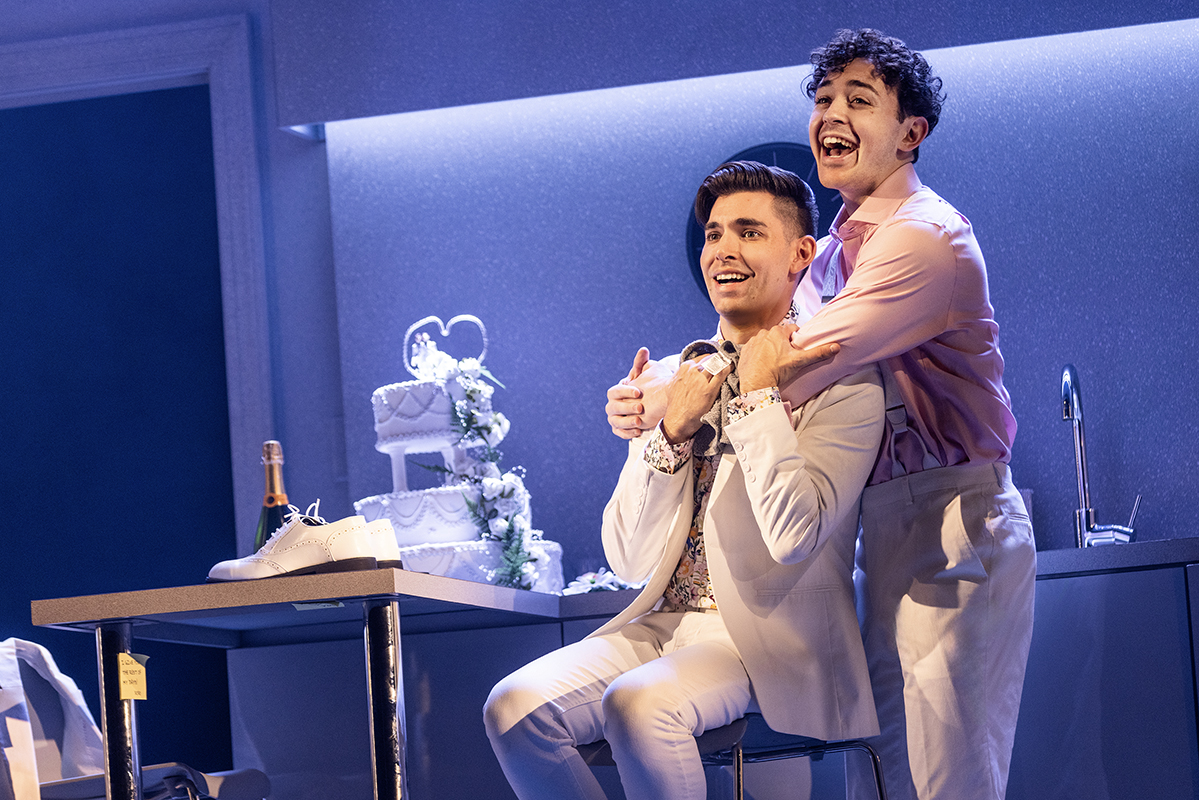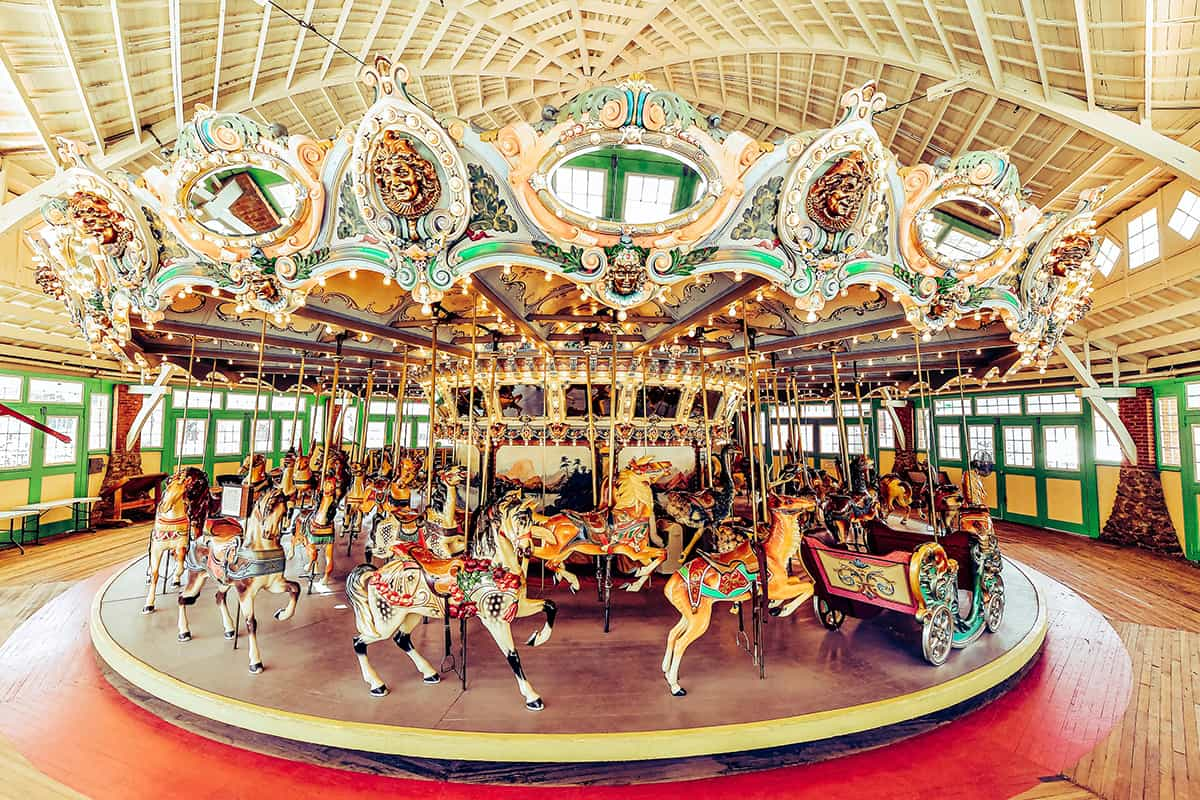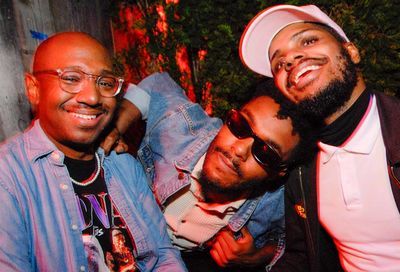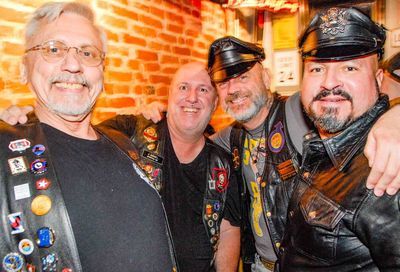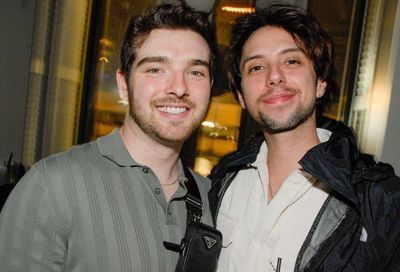Washington National Opera’s “Dead Man Walking” (review): Original, beautiful and compelling
The Washington National Opera's Dead Man Walking is what modern opera should be

This may sound churlish, but it’s not: see the Washington National Opera’s Dead Man Walking with no expectations. Don’t expect Sean Penn and Susan Sarandon, don’t expect La Boheme. Because, quite simply, if you can get through the opera doors without expecting anything, you’ll be blown away.
And that’s saying something, because contemporary opera gets a bad rap. When it’s atonal, it’s inaccessible. When it’s accessible, it can sound like bad incidental music. Then there’s the whole problem of storytelling: Should it be slice-of-life modern or should it try to capture some kind of epic tale of our times? What works so brilliantly about Jake Heggie’s Dead Man (★★★★★), is that he clears all these hurdles, and then some.
Based on the true account of Sister Helen Prejean, the opera follows her decision to serve as spiritual advisor to Joseph De Rocher, a man convicted of a horrendous crime, who awaits execution on Death Row. As dramatic as the crime is (it is depicted as a prelude with just enough care and discretion), the real focus here is the profoundly turmolic aftermath: the distraught families, the question of whether Joseph is innocent, the facing of death — planned or otherwise — and the value of making some kind of peace before the end. Each and every one of these themes touch a universal nerve and it makes for an opera rich with emotional and spiritual dilemmas.
But much like another contemporary composer, the iconic Benjamin Britten, Heggie understands that one of the keys to accessibility is having the music not so much accompany as tell the story. Here, the score is nothing less than a lively, emotionally involved narrator. Setting the scene with flavor and mood one minute, then describing with wild, emotional gesture the next, it is as present as any of the actors. And just as a storyteller puts on voices for his characters, so does Heggie’s music. A wonderful example is the way in which tendrils of southern jazzy blues braid their way through Joseph’s songs. It tells us not just what he is — one in a long line of Louisiana rough-necks — but who he is: lost and wistful.
As with Britten, Heggie’s is a “voice” that captures poignantly the horror of revelation, that mix of the distraught, touched by panic. What he does equally well is grow suspense, be it hovering, ominous strings or the frantic hammer of an alarmed glockenspiel. Heggie’s singers ride the music like so many waves, but they also become — as in jazz — instruments that mingle like soloists with the orchestra. All told, it’s an extraordinarily riveting tapestry of sound, all of it accessible, all of it an ideal vehicle for this emotionally traumatic story.

To direct this opera must be something of a tightrope act. One must embrace Heggie’s incredibly talkative score without letting the actors/singers turn feverish under its spell. Francesca Zambello does a superb job of keeping the acted narrative clear and concise — never out of step with the music, never overdone. Indeed, what works so magically here is the way in which it is the singing voices that meet the emotional highs of the score. If Zambello allows Heggie his one corny moment — the bonding of Joseph and Sister Prejean over Elvis — well, it could have been worse.
Completing the brilliance of the production is a stellar cast. In the role of the innocent but gutsy Sister Prejean, Kate Lindsey sings with a sweet, rich beauty that only increases as the evening progresses and emotions grow. If her “aw-shucks” demeanor is a tad overdone in the beginning, it is more than outweighed by her later descent into near-despair, described in numerous touching arias and sung with true delicacy. It is a long and intense role and Lindsey is utterly memorable.
Fully her match, Michael Mayes plays Joseph as large as the role needs, but never goes overboard. Indeed, it is his understated performance that makes his terror at the end all the more disturbing and meaningful. A beautiful, gratifyingly dense baritone, Mayes relishes the score’s long, sonorous notes, but he simply stuns with his dexterity. In Joseph’s mini-aria, in which he imagines peaceful evenings on the lake with a woman, Mayes moves seamlessly between opera and jazzy-blues, his voice gliding like liquid gold. Extraordinary.
Another standout is Susan Graham as Mrs. De Rocher, Joseph’s mother. Graham gives pitch-perfect expression to this woman who is not quite white trash, but who has had too many debts and too little education to ever improve her lot. Graham never lets her become a cliché, singing with gorgeous soaring power, while her last moments with Joseph are acted and sung with exquisite despair.
If these are the highlights, there are countless other smaller moments and performances here that make this production one to remember. Just one example is the inestimably clever ways in which Heggie and librettist Terrence McNally suggest the terrible loss at the heart of the story — not just through the grief — but through the innocent memories of a mother’s love shared between Sister Prejean and her colleague Sister Rose, played and sung thoughtfully by Jacqueline Echols.
The takeaway is that this is what modern opera should, and must, be: beautiful and compelling in its own, original way. Once you see Dead Man Walking, you’ll expect nothing less.
Dead Man Walking runs to March 11 at the Kennedy Center Opera House. Tickets are $35 to $300. Call 202-467-4600 or visit kennedy-center.org.
Support Metro Weekly’s Journalism
These are challenging times for news organizations. And yet it’s crucial we stay active and provide vital resources and information to both our local readers and the world. So won’t you please take a moment and consider supporting Metro Weekly with a membership? For as little as $5 a month, you can help ensure Metro Weekly magazine and MetroWeekly.com remain free, viable resources as we provide the best, most diverse, culturally-resonant LGBTQ coverage in both the D.C. region and around the world. Memberships come with exclusive perks and discounts, your own personal digital delivery of each week’s magazine (and an archive), access to our Member's Lounge when it launches this fall, and exclusive members-only items like Metro Weekly Membership Mugs and Tote Bags! Check out all our membership levels here and please join us today!




